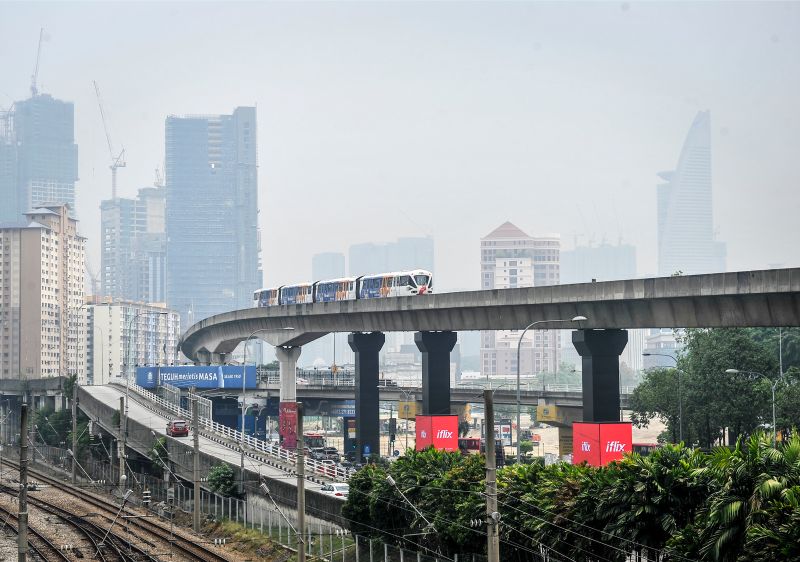PETALING JAYA, April 24 — The government has warned the dry and hot spell could stretch to September, resulting in depleting water reserves, more forest fires and worsening haze.
Science, Technology and Innovation Minister Datuk Wilfred Madius Tangau said the hot weather would continue for the next five months due to the changing Southwest monsoon winds. The monsoon season is between May and September.
“This will cause water reserves at dams to deplete. The winds from Sumatra will carry hot air and haze between May and September,” he said.
“Cloud seeding activities will continue especially in Perlis, Kedah, Perak, Johor and Sabah.”
Six dams nationwide — Bukit Kwong (Rantau Panjang), Beris (Sik), Muda (Kuala Nerang), Padang Saga (Langkawi), Timah Tasoh (Kangar) and Labong (Mersing) — have recorded water levels below 50 per cent, according to the Natural Resources and Environment Ministry.
Perlis, Kedah, Penang and Perak have 25 more days to go before they run out of reserves.
Chuping in Perlis, having experienced chilly weather at 22°C in 2014, recorded 37°C yesterday.
More lakes and rivers, including the Bukit Merah lake in Kerian, Perak, and Sungai Pinang in George Town have almost completely dried up as the country faces its worst dry spell since 1998.
Various industries have expressed concern over the situation while farmers and fish breeders said they have recorded losses due to the heat.
Banting Fire and Rescue Department chief Jaslizad Jalil said the hot weather has made it difficult for them to extinguish forest fires in Kuala Langat. He said there was lack of water in the area as Sungai Langat had dried up.
Air quality deteriorated as five areas in the Klang Valley recorded unhealthy Air Pollutant Index readings yesterday, while visibility levels in certain areas were reduced to 1.5km, said the Meteorological Department.
An environmental expert said the weather could hit 40°C if the heatwave continued.
Universiti Malaya Geography Department climate expert Prof Datuk Azizan Abu Samah said although there will be some rain during this period, the rainfall will do little to increase water levels at dams nationwide.
“With dams reaching critical levels, we could see more water rationing exercises being carried out,’’ he said, adding that the annual padi harvest would be severely affected.
“Despite Mada (Muda Agriculture Development Authority) releasing water from irrigation dams for padi farmers to grow off season, we will still see lesser yield of crops,’’ he said.
According to Azizan, the government had been warned about the weather pattern last year.
“I told the authorities about the long dry spell in June last year. However, the way we are reacting to the situation now shows the lack of comprehensive plan to tackle the issue.
“Any endeavour to absorb or dampen the effects of El Nino should have been done six months ago,’’ he said.
Azizan suggested the authorities to look into alternative methods of extracting water.
“It is still not too late. We should be looking at ground water extraction as an alternative source of water supply.
“The authorities should also look into treating alternative water source for domestic use instead of irrigation works.
Azizan said once El Nino is over, the country could also be facing flood problems.
“Predictions for La Nina, which would set in by September or October, are expected to bring above than average rainfall that would replenish water sources nationwide.
“However, if heavy rains continue for a long period, we could face major floods,” he said.



















